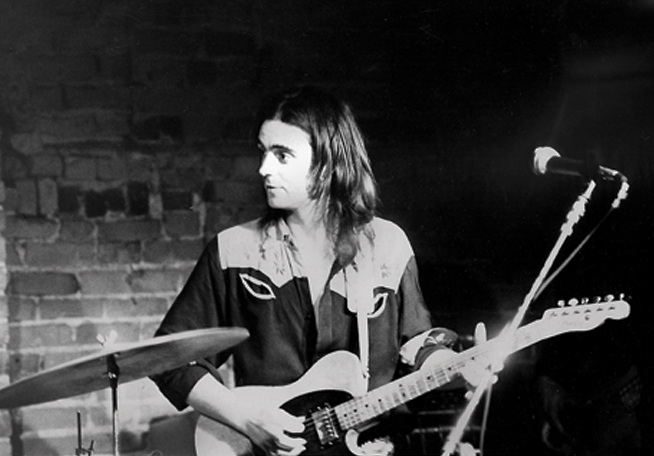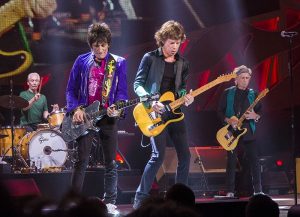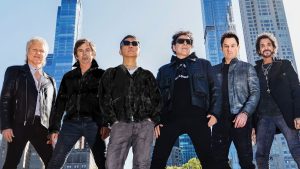Terry Reid: The Voice of "Superlungs" Silenced at 75

On August 4, 2025, the music world lost a singular talent with the passing of Terry Reid, the British singer, songwriter, and guitarist affectionately known as “Superlungs” for his emotive and powerful vocal style. Reid, who died at 75 after a battle with cancer, leaves behind a legacy as a cult favorite whose influence far outstripped his commercial success. Revered by peers like Aretha Franklin, Mick Jagger, and Jimmy Page, Reid’s career was defined by his fierce independence, most famously for turning down offers to front Led Zeppelin and Deep Purple, choosing instead to forge his own path in rock, blues, and soul.
Early Life and Rise to Prominence
Born Terrance James Reid on November 13, 1949, in St. Neots, Cambridgeshire, England, Reid was a prodigy whose musical journey began in his teens. Growing up in Needingworth and attending St. Ivo School, he left formal education at tender age of 15 to pursue music, a decision that would shape rock history. Whether he had any idea that would happen is anyone’s guess.
Reid’s early break came when he joined Peter Jay and the Jaywalkers, a soul-infused band that opened for The Rolling Stones’ 1966 UK tour at the Royal Albert Hall. His raw, electrifying stage presence caught the attention of Graham Nash of The Hollies, who recommended that the Jaywalkers sign with Columbia Records. Their 1967 single, “The Hand Don’t Fit the Glove,” was a minor hit, but the band soon broke up, setting the stage for Reid’s solo career.
When he was just 18 years old, Reid signed with producer Mickie Most, a pivotal but troubled partnership. His debut album, Bang, Bang You’re Terry Reid (1968), showcased his fiery guitar work and a voice that could shift from vulnerable to commanding in a single breath. The album included “Without Expression,” a song Reid wrote at 14, later covered by The Hollies, Crosby, Stills, Nash & Young, REO Speedwagon, and John Mellencamp. Aretha Franklin, at the height of her fame in 1968, declared, “There are only three things happening in England: The Rolling Stones, The Beatles, and Terry Reid,” a testament to his early promise. Reid’s 1968 U.S. tour supporting Cream and his performance at the Miami Pop Festival earned glowing reviews, cementing his reputation as a live wire with a loyal following.
The Led Zeppelin and Deep Purple Decisions
Reid’s career is often framed by two monumental decisions: declining offers to front Led Zeppelin and Deep Purple. In 1968, after The Yardbirds disbanded, Jimmy Page sought Reid as the vocalist for his new band, called the New Yardbirds. The band which later became Led Zeppelin.
Reid, committed to a solo tour with The Rolling Stones and wary of clashing with Keith Richards’ plans, declined. Instead, Reid recommended Robert Plant and John Bonham from Band of Joy, effectively shaping Led Zeppelin’s lineup. A year later, he turned down Ritchie Blackmore’s offer to join Deep Purple, citing a desire to maintain his musical freedom.
A Solo Career Marked by Challenges and Triumphs
Reid’s solo career proved to be both brilliant and turbulent. His 1969 self-titled album, featuring tracks like “Superlungs My Supergirl” and “Rich Kid Blues,” showcased his ability to blend hard rock, folk, and blue-eyed soul. However, a contractual dispute with Mickie Most stalled his momentum, preventing him from recording for several years. His 1973 album River, recorded with Atlantic Records and musicians like David Lindley and Willie Bobo, remains a cult classic for its fusion of progressive folk, R&B, and samba. Critics praised its innovative sound, but commercial success eluded him. Reid later reflected, “Atlantic didn’t really get behind me. Now people tell me how much they love River—I think it’s found its audience.”
In 1976, Graham Nash produced Seed of Memory, a softer album rich with pedal steel and melodic warmth, followed by Rogue Waves (1978), produced by Chris Kimsey, which captured Reid’s live energy. Despite critical acclaim, these albums didn’t chart, and by the 1980s, Reid shifted to session work, lending his voice and guitar to artists like Don Henley, Bonnie Raitt, and Jackson Browne. In 1991, he returned with The Driver, produced by Trevor Horn, featuring a cover of “Gimme Some Lovin” for the Days of Thunder soundtrack. Though the album gained some airplay, Reid called it “unlistenable,” reflecting his uncompromising standards. His final release, The Other Side of the River (2016), was an expanded reissue of River outtakes, reaffirming his enduring influence.
Collaborations and Cultural Impact
Reid’s influence extended far beyond his solo work. His songs were covered by artists like Cheap Trick (“Speak Now”), The Raconteurs (“Rich Kid Blues”), and Chris Cornell (“To Be Treated Rite”). He performed at historic events like the 1969 Isle of Wight Festival, where he shared the bill with Gilberto Gil and Caetano Veloso, whose Brazilian rhythms inspired his music. Reid’s 1970 Glastonbury performance, including a duet with Linda Lewis, was legendary. In the 1990s, he toured with Mick Taylor and joined informal jams with Joe Walsh and Nicky Hopkins. His guitar collection, including a 1952 Gibson Les Paul Goldtop and a Gretsch Black Falcon, reflected his deep connection to the craft.
Health Struggles and Final Days
In recent years, Reid faced health challenges, culminating in a cancer diagnosis that forced him to cancel a 2025 European tour, including dates in the UK, Ireland, and Norway. A GoFundMe campaign launched in July 2025 to assist with medical expenses highlighted his enduring and loyal fanbase. Despite treatment, Reid’s condition worsened, and he passed away on August 4, 2025, survived by his wife, Annette. His final performance was in September 2024 at London’s Half Moon, a testament to his lifelong dedication to music.
Tributes and Legacy
The music community mourned Reid’s loss with heartfelt tributes. Joe Bonamassa, a close friend, wrote, “One of the greatest to ever do it and a beautiful person and soul.” Glenn Hughes called him “one of the greatest rock n’ soul singers of any generation.” Fans on X echoed this sentiment, with one stating, “Terry was awesome… his legacy will live on.” Reid’s music appeared in films like The Devil’s Rejects and Up in the Air, and his 2016 documentary Superlungs captured his enduring appeal.
Though Reid never achieved the stardom of Led Zeppelin or Deep Purple, his influence as a musician’s musician is undeniable and enduring. His voice, described as both vulnerable and dangerous, and his eclectic style—blending blues, rock, and Brazilian rhythms—left an indelible mark. As Aretha Franklin’s 1968 praise suggests, Reid was a peer to the greatest, a legacy that endures through his recordings and the artists he inspired and will continue to inspire in the future.




